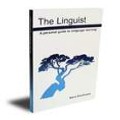The ability to write clearly is required for entrance to university and for many workplace situations. Some learners may not feel it is necessary for them to work on their writing if they only want to learn to speak in the new language. However, I recommend that everyone make the effort to write regularly, even if only a little at a time. Writing is an excellent way to train yourself in the proper use of the language. You have the time to express yourself carefully when you write, whereas in conversation you are under greater pressure and need to be more spontaneous.
When you write, take the time to try to write correctly. Make a plan of what you are going to write. If you do not organize your thoughts ahead of time you may not make sense writing in a foreign language. When correcting English I am always amazed at non-native speakers who just dash off emails and other texts without even using a spell-checker. Anyone working as a professional in an international company has to write correctly and understandably, otherwise it is the very image of the company that is damaged. If you are unable to do this for yourself, use the services of a text correcting service.
If you have trouble with verb tenses, think through the time when each action is taking place. Use the phrases you have mastered when you write, instead of simply translating from your native language. Many of the most common problems relating to word order, choice of words, prepositions, verb tenses and verb agreement can be eliminated by building your written language around the phrases you have learned.
Until you are fluent, try to speak the way you write and write the way you speak, in short, simple and complete sentences. Do not speak in a casual way and then try to write stilted or complicated prose. Even if native speakers are sloppy in their speech and use a lot of slang, as a learner you cannot afford to do so. You do not have a strong enough foundation in the new language. You will need to be aware of casual or slang speech in order to understand it. But you are best to avoid it until you are quite fluent and really sure when to use it. Even though it is hard work, writing is an excellent way to develop genuine eloquence in a new language.
If your speech is similar to your written style, each will reinforce the other. It is less stressful to accept corrections of what you write than to have your spoken language corrected. The corrections in your written work can then be applied to your spoken language. While spoken language is more forgiving than written language, the same phrases and words can be used effectively in both.
You should have your writing corrected regularly and your mistakes analyzed and measured. It is important to keep a statistical record of the kinds of errors you make most frequently. Have your coach recommend new phrases to replace the incorrect ones. You should save these new phrases into your database. Later you should create custom lists of words and phrases in your database to use when writing and speaking. In this way you can make sure that your expression in the new language becomes richer and more accurate, incorporating the new vocabulary that you are learning.
It is worth considering the self-teaching methods of Heinrich Schliemann (1822-1890) the world-famous businessman turned archeologist who discovered the site of ancient Troy. As reported by Arnold Toynbee in A Study of History (Oxford University Press 1963), Schliemann was able to express his thoughts orally and in writing after about six weeks of self-study, in Modern Greek, Ancient Greek, Persian, Arabic, and Turkish. His method consisted of "reading a great deal aloud without making a translation, taking a lesson every day, constantly writing essays upon subjects of interest, correcting these under the supervision of a teacher, learning them by heart, and repeating in the next lesson what was corrected on the previous day." The motivated learner who is prepared to work every day can achieve great things. Fortunately language learning is much easier today than it was in the 19th century.
When you receive a corrected version of something you have written, take the time to look at it. Read it aloud several times. Focus on the corrected phrases. Make them a part of your way of speaking in the new language. Especially if you do not have easy access to native speakers for conversation, this can be an inexpensive and yet intense learning activity. You can improve your vocabulary, sentence structure, pronunciation and general speaking skills. You can prepare yourself for what most people find the most enjoyable part of language learning: conversation with the native speaker.

